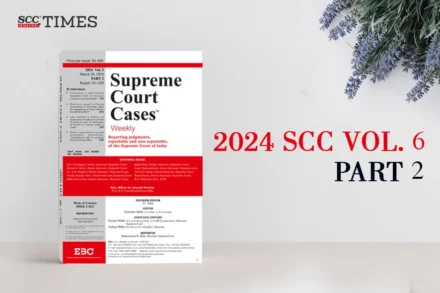
2024 SCC Vol. 6 Part 2
Arbitration — Arbitration and Conciliation Act, 1996 — Ss. 34 and 37 — Arbitral award — Validity of: Law explained on validity

Arbitration — Arbitration and Conciliation Act, 1996 — Ss. 34 and 37 — Arbitral award — Validity of: Law explained on validity
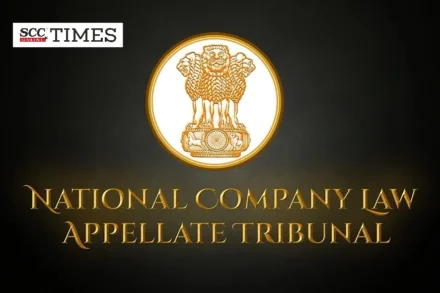
The NCLAT criticized the appellants for unnecessarily burdening the Tribunal with excessive documentation, voluminous records and citations of little value, thereby wasting Tribunal’s resources and acting contrary to professional ethics.
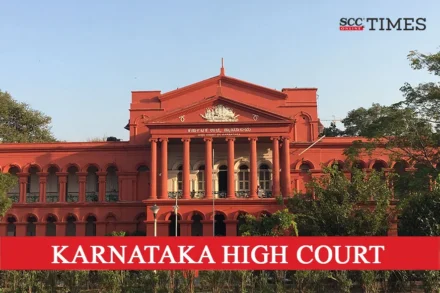
The Court further directed that the exercise of deciding as per the remand order by Single Judge must be completed expeditiously and before 31-07-2024.
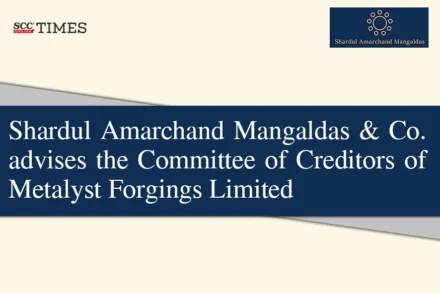
Shardul Amarchand Mangaldas & Co. advised the committee of creditors (CoC) in the corporate insolvency resolution process of Metalyst Forgings Limited (Metalyst),
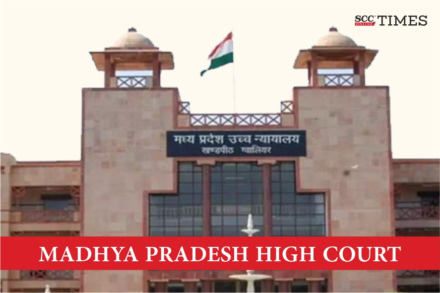
The Court held that the proceedings under Section 138 of the Negotiable Instruments Act, 1881 are penal in nature and not akin to civil recovery proceedings.
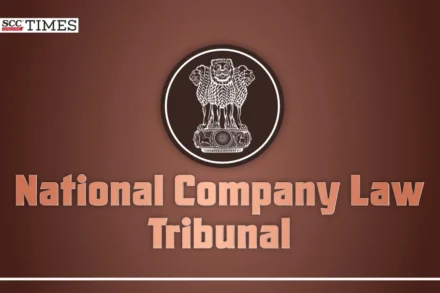
The NCLT stated that the petitioner neither had a direct contractual relationship with the respondent, nor was the respondent provided with any goods/services, thereby disqualifying them as an operational creditor.

The NCLT ordered the respondents to maintain the status quo regarding existing shareholders and their shareholding.

The application is filed by Jammu and Kashmir Bank against the Himalayan Mineral Waters Private Limited for a total financial debt of Rs. 50,04,38,456/- for the credit facilities availed by Leel Electricals.

The Court exonerated the charges of contravention of prescribing non-refundable participation fee levied on Liquidator of Corporate Debtor, however, he was found guilty of paying excess fees to BDO Restructuring Advisory LLP.

The Delhi High Court said that the winding up proceedings which have not progressed to an advanced stage before the High Courts, ought to be transferred to the NCLT.

The Delhi High Court emphasised that if the relevant documents are not provided to a party, the whole procedure of issuance of Show Cause Notice would be reduced to an empty formality.

The Merger scheme aims to restructure and streamline the operations of the applicant companies to achieve operational efficiencies and facilitate future growth and expected to create synergies, reduce costs, and create value for shareholders of the involved entities.

The NCLT directed the Resolution Professional to hand over control of Syska LED Lights Pvt. Ltd. back to the Corporate Debtor, if it had been taken over.
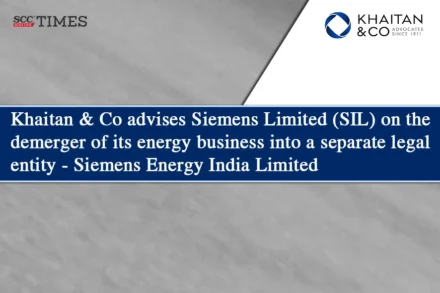
DEAL DETAILS Siemens Limited’s demerger of energy business Khaitan & Co advised Siemens Limited (SIL) on the demerger of its energy business
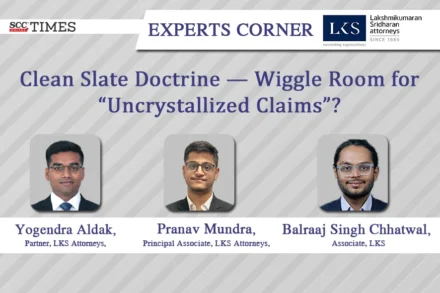
by Yogendra Aldak†, Pranav Mundra†† and Balraaj Singh Chhatwal†††
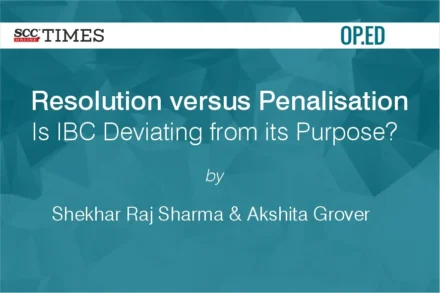
by Shekhar Raj Sharma* and Akshita Grover**

“It is trite that the international treaty obligations are required to be followed strictly and any deviation therefrom would have adverse effects including downgrading of the business interests of country in the international community.”

The NCLT admitted Section 7 IBC application against the Deccan Charters, Air Charter Company over a default of approx. Rs. 9 Crore 82 Lakhs.

In the instant matter, the NCLT rejected the application, noting the approval of the resolution by the Committee of Creditors and the absence of filing through an authorized representative.

The NCLT issued a notice and sought BharatPe’s response and fixed the next date of hearing on 04-04-2024.